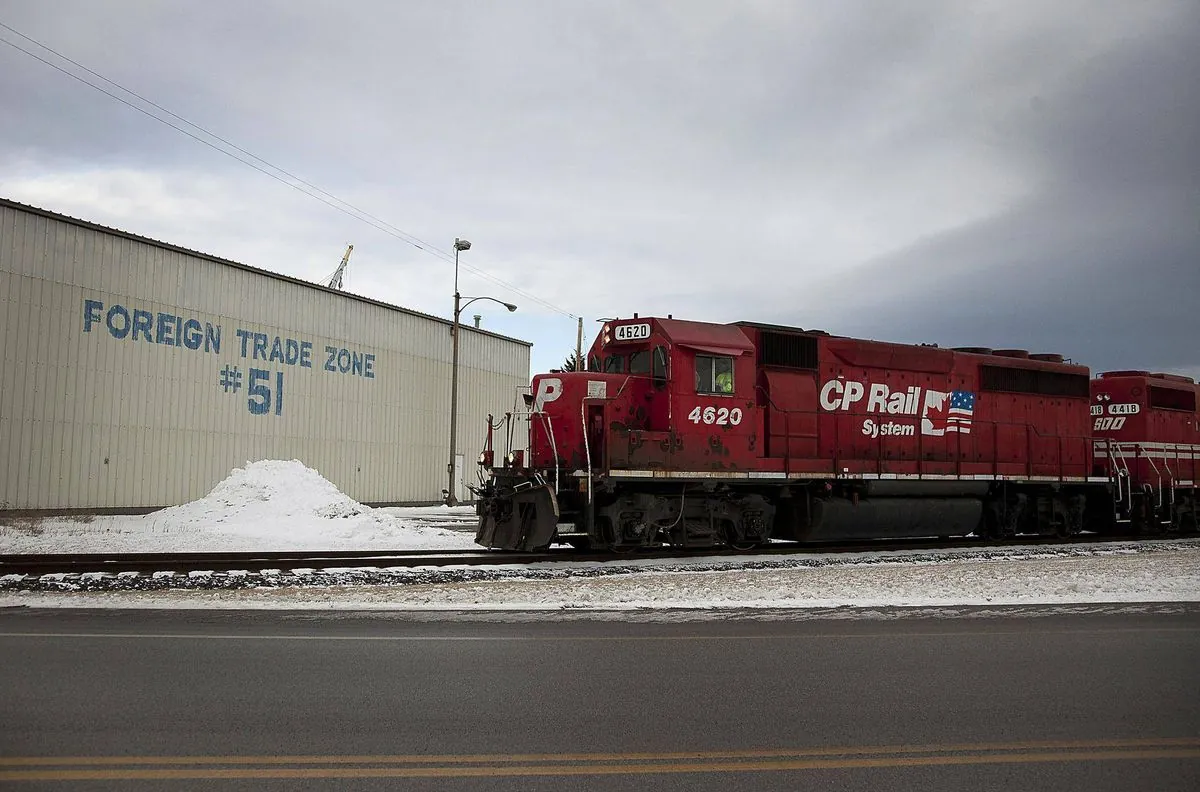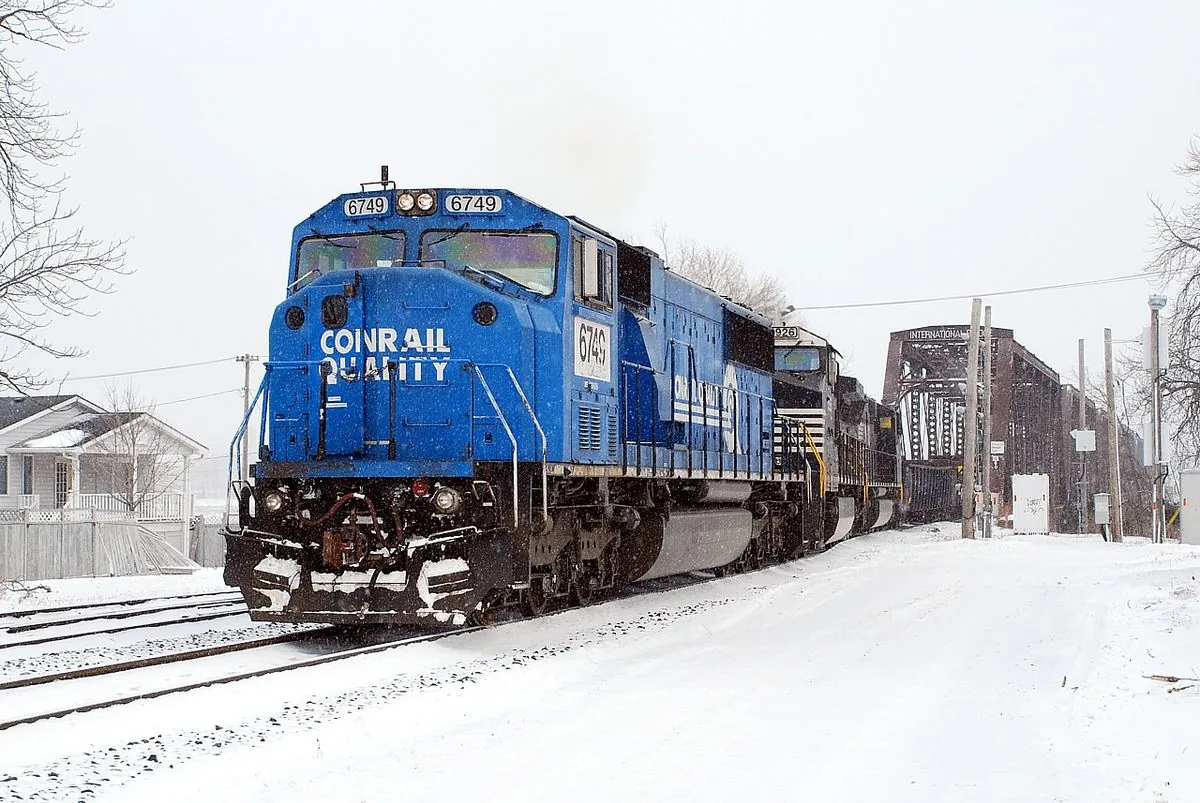Canadian Rail Lockout Threatens North American Supply Chains
Major Canadian rail companies plan to lock out 10,000 workers, potentially halting freight movement across North America. The unprecedented stoppage could severely impact US-Canada trade and various industries.

Canada's two primary freight rail operators are poised to initiate an unprecedented simultaneous work stoppage, potentially bringing rail freight movement across the country to a standstill. Canadian National Railway Co and Canadian Pacific Kansas City have announced plans to lock out approximately 10,000 of their Canadian unionized workers on August 24, 2023, at 12:01 a.m. ET.
This impending lockout raises significant concerns about its impact on North American supply chains and trade. The extensive integration of Canadian and US rail networks underscores the potential far-reaching consequences of this action. Canadian National Railway, which operates the largest rail network in Canada and the only transcontinental network in North America, connects to US rail operators, facilitating the movement of goods across the continent.

The interconnected nature of these networks is crucial for North American trade. Canadian Pacific Kansas City, formed through a merger in 2023, created the first single-line rail network linking Canada, the US, and Mexico. This integration highlights the potential for disruption beyond Canada's borders.
"A simultaneous stoppage would have devastating consequences for the U.S. and Canadian economies."
The impact on US-Canada trade could be substantial, given that the two countries share the world's largest bilateral trading relationship. Approximately one-third of the traffic moved by the two Canadian rail companies crosses the US-Canada border, which at 8,891 kilometers, is the world's longest international border.
The agricultural sector stands to be particularly affected. The US exported $28.3 billion of agricultural products to Canada in 2023, while importing $40.1 billion. A rail stoppage would disrupt the movement of crucial commodities such as wheat, ethanol, and potash. Canada, being the world's largest producer of potash, accounting for about 32% of global production, could see significant impacts on its fertilizer exports.
The potential effects extend to Canada-Mexico trade as well. In 2023, two-way trade between these nations amounted to nearly C$55 billion, with a substantial portion moving via rail. This includes exports of wheat and meat from Canada, and imports of vehicles and produce from Mexico.
While the trucking industry is experiencing increased demand in anticipation of the rail stoppage, experts caution that road freight cannot fully replace rail distribution. The limited capacity to handle bulk commodities like potash and coal highlights the critical role of rail in North American logistics.
This situation underscores the importance of the integrated North American transportation system, which includes crucial infrastructure like the St. Lawrence Seaway, jointly managed by Canada and the US since its opening in 1959. As stakeholders brace for potential disruptions, the outcome of this labor dispute could have significant implications for North American trade and supply chains.


































